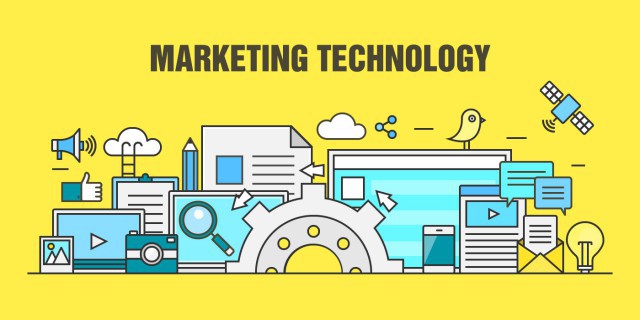
It’s not easy to sell things – especially something as intangible as marketing technology.
For the buyer investing in an AdTech or MarTech solution (we will put them in the same basket for the purposes of this article), it can’t be a leap of faith. Buyers are becoming more rigorous in their examining and auditing of vendors and in ensuring the capabilities promised are delivered.
Investment in MarTech as a percentage of budget actually fell in 2019. Gartner data shows as a percentage of CMOs’ total marketing expense budget, tech went down from 29% to 26% – although still higher than the 22% share of budget in 2017.
The landscape is even tougher this year thanks to the COVID-19 pandemic. MarTech budgets will be tight as companies with spare cash will hold on to it as a cushion for the economic fallout.
A world without trade shows
From the vendor point of view, there are no trade shows scheduled and they have long been the pre-eminent channel for MarTech vendors to make first contact, give a demonstration and pitch their solutions face to face. They have also been the place where MarTech vendors have often put their sponsorship budgets for badging, profile and access opportunities.
The competition will be fierce and it is more important than ever to understand how to cut-through the noise, grab the attention of decision-makers and kickstart a conversation that could ultimately secure a contract.
At Propeller we have worked with many MarTech vendors, helping them build their profile and network so they can attract both business and investment. Our own network also includes many buyers of MarTech, from Chief Marketing Officers to Sales Directors in mainstream media, so over time we have amassed insights into what buyers want to hear and what they don’t.
Who is the decision-maker?
It’s important to know who makes decisions for MarTech investment. The people responsible for delivering the ROI of the technology is a good starting point and logic suggests this will be the senior marketer. But every company is differently structured. Retail businesses will be different from a sales-led B2B business, for instance.
Some businesses see MarTech as a collective, long-term strategic investment to be assessed and carried out in tandem with other members of the team, such as the IT director. Expect representatives from Legal and Compliance departments to enter the discussion at some point.
When you do engage with a prospect don’t assume you are the expert in the conversation. Vendors should now expect to encounter a high degree of expertise within brands. It’s essential to know the capabilities of what you are selling inside-out and be prepared for tough questions.
As former CMO of Santander Keith Moor said at a Propeller panel event last year: “My media team are MarTech experts, particularly AdTech. They are honing their skills more in understanding the tech than understanding media, because that is more important for a media team inside my marketing function. That’s how we get more efficiency and more value.”
Six points to bear in mind when beginning the MarTech sales trail:
- Building credibility is important and a marketer will make their ultimate choice due to testimonials, inclusion on a recommended list and positive profile in industry media.
- Make sure the prospect is clear about their business priorities, their strategy and reasons for wanting the technology. If there is a live project then ask for an RFP document – even if it’s only a page it will help you understand and define the prospect’s business problem and what is in-scope and out of scope for the solution.
- Help your point of contact build their business case. They will have to persuade the Financial Director and board that the investment is sensible and will pay-off so give them the tools and data to do this.
- Understand that a marketer will build into the business case the number of full-time employees they will need to train and develop internally to become experts in that piece of kit. This is a cost they will have to take into account when deciding.
- Decision-making for consumer-facing tech to enhance the customer experience will also focus on how it can improve the efficiency and productivity of the marketing function.
- When selling a product to a marketing specialist, consider how it will fit into the business’s working culture and wider goals. Tailoring each sales pitch in this way will increase the chances of a client win.
Business of any size is rarely sealed after a long lunch and a handshake – and that’s definitely off the table for now. But with the structured physical networking events and shows on pause you need to find other ways to share your expertise and insight and stay top of mind. Explore how to make contacts at virtual events or host your own. Produce regular content, including reports, articles and podcasts, which can be shared via LinkedIn, media and partner networks to generate new leads.
For any content and events you do produce, always remember to focus on the needs of your buyer. You can get them involved in the process through interactive events, meetings, interviews and research. By understand more about their key challenges, you are likely to stand a much better chance of getting their interest.
Across the Propeller Group we are working with MarTech clients to develop ebooks, podcasts and online events to help keep top of mind with prospective buyers and generate new leads. Do get in contact if you would like help with developing and distributing your own stand-out content.
Views on the News – CMO Special – How brands should communicate in crisis. Click here to listen to our latest CMO Special podcast.